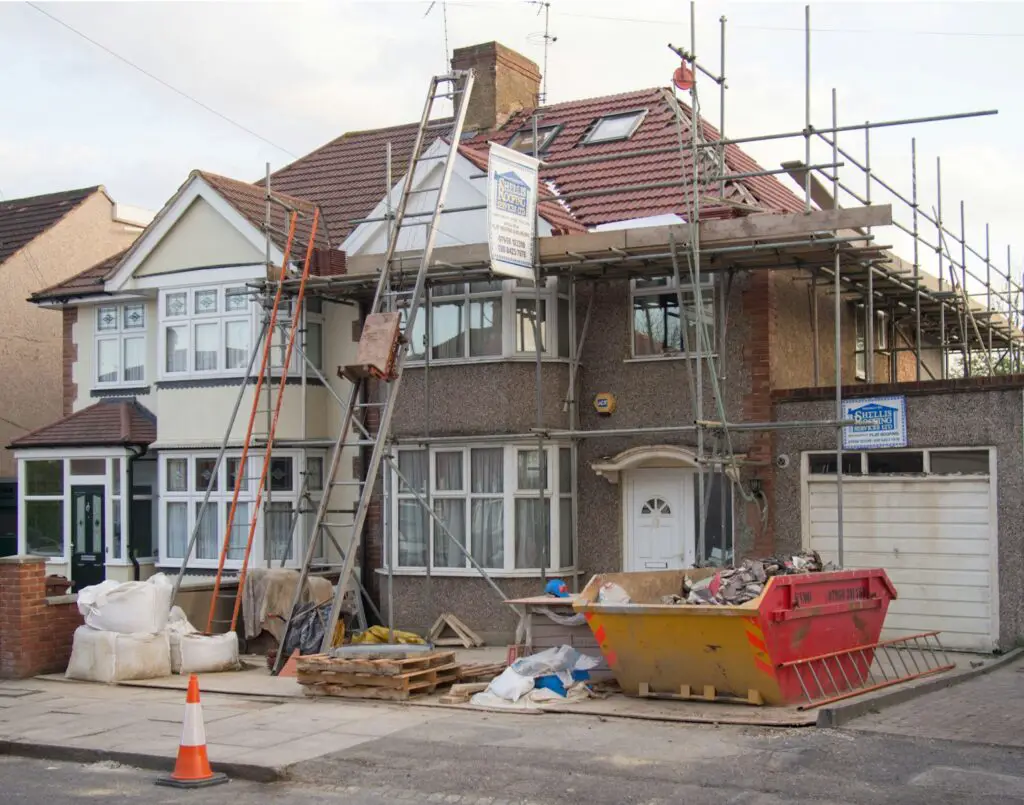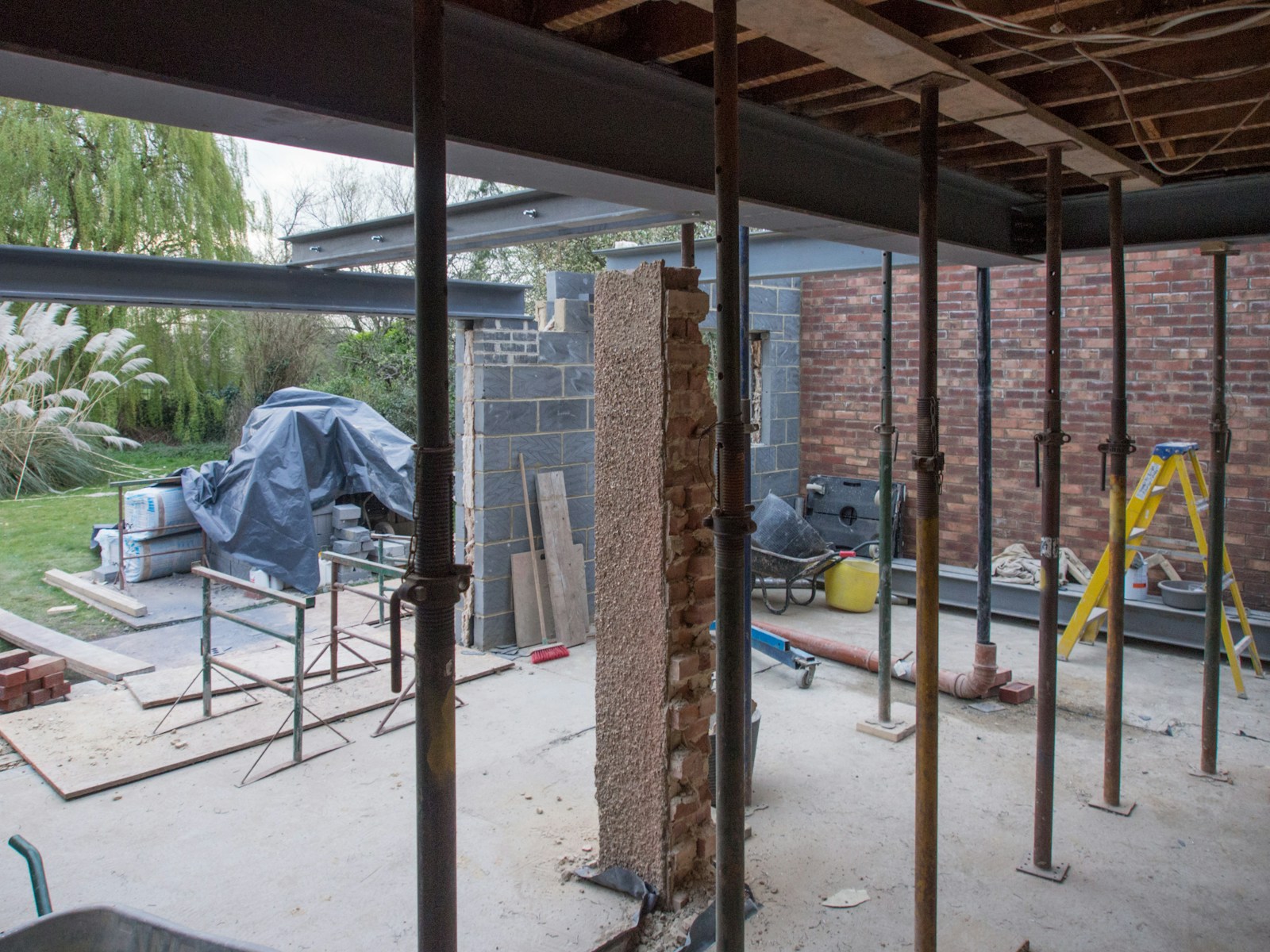Looking to build a successful career as a home builder? If you have a passion for construction, creativity, and the drive to turn dreams into reality, becoming a home builder may be the perfect path for you.
In this article, we will guide you through the essential steps, qualifications, and skills needed to embark on a fulfilling journey in the field of home building.
With the demand for housing continuously on the rise, mastering the art of becoming a home builder can present a rewarding and lucrative opportunity for those with the right expertise and determination. So, let’s dive in and explore what it takes to become a home builder and pave your way to a flourishing career in the construction industry.

Requirements to Become a Home Builder
Becoming a home builder requires a combination of education, experience, and the necessary licenses and certifications. It is an exciting career path that allows you to turn your passion for construction into a thriving business. If you are considering a career as a home builder, here are the key requirements you need to fulfill:
Obtain Relevant Education and Training
Obtaining relevant education and training is essential to become a successful home builder. While a formal education may not be a strict requirement, it can greatly enhance your knowledge and skill set in the construction industry.
Consider pursuing a degree or diploma in a relevant field such as construction management, architecture, or civil engineering. These programs offer valuable coursework on topics like building codes, project management, and construction techniques.
In addition to formal education, participating in vocational training programs or apprenticeships can provide practical skills and hands-on experience in home construction. These programs often include on-the-job training, where you get the opportunity to work alongside experienced professionals and gain a strong foundation in various aspects of home building.
Gain Practical Construction Experience
Acquiring practical construction experience is crucial for becoming a competent home builder. It allows you to apply theoretical knowledge into real-world scenarios, understand the nuances of the construction process, and improve your decision-making abilities.
To gain practical experience, consider working as an assistant or intern with established home builders or construction companies.
Participating in construction projects will provide you with valuable insights into the different stages of the building process, from planning and foundation to electrical and plumbing installations.
Take this opportunity to collaborate with experienced professionals, ask questions, and learn from their expertise. The more hands-on experience you gain, the more confident and efficient you will be when it comes to building your own projects.
Acquire Necessary Licenses and Certifications
Acquiring the necessary licenses and certifications is a crucial step to ensure your legitimacy and compliance with local building regulations. Each state and country may have specific requirements for home builders, so it’s important to research and understand the licensing and certification process in your area.
Start by checking with your local government or building authority to determine the specific licenses you need to operate as a home builder. This may include a general contractor’s license or specialized licenses for electrical or plumbing work. Additionally, there may be certain certifications, such as Leadership in Energy and Environmental Design (LEED) accreditation, that can set you apart in the industry and demonstrate your commitment to sustainable building practices.
Remember that obtaining licenses and certifications typically involves meeting certain criteria, such as passing exams, providing proof of experience, or completing specific training programs. It is advisable to stay updated on any changes or updates to licensing requirements to ensure you maintain compliance throughout your career.
Developing Skills for Home Building
Mastering Construction Techniques
To become a skilled home builder, you need to have a deep understanding of various construction techniques. Mastering these techniques will enable you to construct a solid and durable home that meets the highest standards of quality. Here are some techniques you should focus on:
- Foundation construction: A strong foundation is the backbone of any home. Learn the different types of foundation systems such as slab, crawl space, and basement, and understand the appropriate choice for different soil conditions.
- Framing: Familiarize yourself with the framing process, including the use of different materials like wood or steel, and the precise measurements required for a structurally sound frame.
- Roofing: Gain knowledge about different roofing materials, techniques for installation, and proper insulation to ensure a watertight and energy-efficient roof.
- Electrical and plumbing systems: Understand the basics of electrical and plumbing installations, including the layout, wiring, pipes, and fixtures to ensure safe and efficient systems.
Understanding Architectural Design
Having a solid grasp of architectural design is crucial for a home builder. It allows you to interpret design plans effectively and bring them to life. Here are some key aspects of architectural design you should focus on:
- Reading blueprints: Familiarize yourself with architectural blueprints, including floor plans, elevations, and cross-sections, so you can accurately understand the design intent.
- Material selection: Learn about different building materials and their properties to select the most suitable ones for each construction element, considering factors like durability, aesthetics, and sustainability.
- Building codes and regulations: Stay updated with local building codes and regulations to ensure your projects comply with safety standards and legal requirements.
- Space planning: Understand how to optimize space within a home, considering factors like traffic flow, functionality, and aesthetic appeal.
Managing Construction Projects Effectively
Besides technical skills, effective project management is essential for a successful home builder. It involves coordinating various activities, resources, and stakeholders to ensure smooth progress and timely completion of projects. Here are some key areas to focus on:
- Planning and scheduling: Develop the ability to create detailed project plans and schedules, breaking down tasks, assigning timelines, and managing dependencies.
- Budgeting and cost estimation: Learn how to estimate material and labor costs accurately, and develop strategies for cost control throughout the project.
- Communication and teamwork: Enhance your communication skills to effectively collaborate with clients, architects, subcontractors, and suppliers, ensuring everyone is on the same page.
- Risk management: Understand how to identify potential risks and develop contingency plans to mitigate them, minimizing delays and avoiding costly mistakes.
By focusing on mastering construction techniques, understanding architectural design, and managing construction projects effectively, you’ll be well-equipped to embark on a rewarding career as a home builder. The skills you develop in these areas will not only enhance your expertise but also contribute to the success of each project you undertake.
Steps to Start Your Home Building Business
Starting your own home building business can be an exciting and rewarding venture. However, like any business, it requires careful planning and organization. Follow these steps to lay a solid foundation for your home building business.

Creating a Business Plan
A well-thought-out business plan is essential for the success of any venture. It serves as a roadmap, guiding you through every stage of your home building business. Take the time to research your target market, analyze the competition, and outline your financial projections.
Here are the key points to include in your business plan:
- Mission Statement: Clearly define the purpose and values of your business.
- Market Analysis: Identify your target market and assess current trends and demands.
- Marketing Strategy: Devise a plan to promote your services and generate leads.
- Operational Structure: Outline the structure of your business, including the roles and responsibilities of key personnel.
- Financial Projections: Estimate your startup costs, projected revenue, and expenses.
Setting up Legal Considerations
Before you start building homes, you need to ensure that your business is set up properly from a legal standpoint. This protects both you and your clients, and helps establish credibility within the industry.
Here are some legal considerations to keep in mind:
- Business Registration: Register your home building business as a legal entity, such as a sole proprietorship, partnership, or limited liability company (LLC).
- Licenses and Permits: Obtain the necessary licenses and permits required to operate a home building business in your area.
- Insurance: Protect yourself and your business with comprehensive liability insurance coverage.
- Contracts: Develop standardized contracts to establish clear terms and protect both parties in home building projects.
Building a Professional Network
A strong professional network is crucial for the success of your home building business. Building relationships with industry professionals, suppliers, subcontractors, and potential clients can open doors to new opportunities and collaborations.
Here are some effective strategies for building a professional network:
- Attend Industry Events: Attend trade shows, conferences, and networking events to connect with other professionals in the home building industry.
- Join Associations: Become a member of industry associations and organizations that align with your business goals, such as the National Association of Home Builders (NAHB).
- Collaborate with Suppliers and Subcontractors: Establish strong relationships with reliable suppliers and subcontractors who can support your projects.
- Develop an Online Presence: Create a professional website and utilize social media platforms to showcase your work and connect with potential clients and industry professionals.
By following these steps, you can set yourself up for success as a home builder and pave the way for a thriving and profitable business.
Final Words
Becoming a home builder is an exciting and rewarding career choice. By following the steps outlined in this guide, you can acquire the necessary skills and knowledge to succeed in the industry. From obtaining the right education and certifications to gaining practical experience, each step will contribute to your success as a home builder.
Start your journey today and build the homes of tomorrow!
